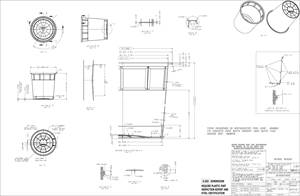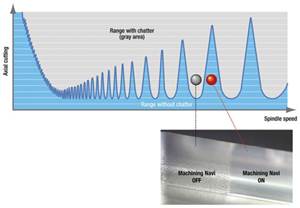No-Nonsense Tips for Promoting Moldmaking as a Career
MoldMaking Technology editorial advisory board member Francine Petrucci of B A Die Mold Inc. outlines a path to workforce development.
Francine Petrucci, MMT EAB member and president of B A Die Mold Inc., believes the moldmaking industry has hit the perfect storm and outlines a path to workforce development. College tuition is through the roof, and graduates are struggling to find good-paying jobs. Additionally, STEAM (Science, Technology, Engineering, Art and Math) curricula and new machining and welding programs at high school and college levels have seen a resurgence, presenting moldmakers with the golden ticket of opportunity.
Promoting mold manufacturing careers to parents, teachers and kids as a smart, rewarding and affordable alternative may seem like a daunting task, but it does not have to be. Here are some no-nonsense steps for getting started.
The single most important thing you can do is establish a relationship with your local high school or community college. Call the administrative office first, as the people who work there are the gatekeepers of the school and can tell you whether they have a machining program. If the school has such a program, someone in the administrative office can tell you the right person to contact. If the school does not have a machining program, it probably has STEAM programs in place and someone who oversees them. Many STEAM classes incorporate CAD and 3D printing instruction, which provides a stepping stone toward advanced manufacturing.
The single most important thing you can do is establish a relationship with your local high school or community college.
Next, make contact. Ask to visit the school to see what it teaches and how it equips its classroom or lab. Offer to do a presentation to the class about careers in mold manufacturing. Bring something to show like a core and cavity stack from a recognizable product, or show this MMT-sponsored video titled “Mold Making: Your Road to Success” and spend some time talking about your personal career path. MMT’s website has many useful resources.
Offer to sit on advisory boards associated with the classes. Don’t panic! Most advisory boards meet only quarterly and are well worth the time away from the office. This is an opportunity to really connect with the school’s administrators and instructors and help guide the creation of meaningful, real-world curricula. Some of my colleagues have employed shop instructors for the summer, giving them a taste of how a modern shop is run, enabling them to hone their machining skills and to build on an invaluable relationship. Once you have a great rapport with the instructors, they are sure to think of XYZ Mold and Die when the right student enrolls in their class.
Finally, consider hosting an open house, preferably on a Saturday so students and their parents can attend. Provide a tour that highlights all the possible career options that professionals can achieve after completing an apprenticeship. If a weekday event is a better fit, work with your instructor liaison to develop a class project where students design a metal component in class and then come to your shop to see it manufactured from job planning to programming and from inspection to finished part!
Related Content
Line Width vs. Depth Ratio in Laser Engraving
A laser does not produce 90-degree sidewalls. It requires a certain amount of draft in order to produce the required pattern.
Read MoreHands-on Workshop Teaches Mold Maintenance Process
Intensive workshop teaches the process of mold maintenance to help put an end to the firefighting culture of many toolrooms.
Read MoreIt Starts With the Part: A Plastic Part Checklist Ensures Good Mold Design
All successful mold build projects start with examining the part to be molded to ensure it is moldable and will meet the customers' production objectives.
Read MoreHow to Eliminate Chatter
Here are techniques commonly used to combat chatter and guidelines to establish a foundation for optimizing the moldmaking process.
Read MoreRead Next
2017 Editorial Advisory Board: Francine Petrucci
The 2017 installment of MoldMaking Technology's EAB features a new crew of 10 industry professionals. Francine Petrucci is one of them.
Read MoreAre You a Moldmaker Considering 3D Printing? Consider the 3D Printing Workshop at NPE2024
Presentations will cover 3D printing for mold tooling, material innovation, product development, bridge production and full-scale, high-volume additive manufacturing.
Read MoreHow to Use Continuing Education to Remain Competitive in Moldmaking
Continued training helps moldmakers make tooling decisions and properly use the latest cutting tool to efficiently machine high-quality molds.
Read More





















